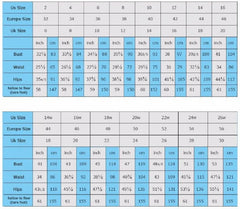Easy Steps to Crafting the Perfect Wedding Day Timeline
February 18, 2025
Melody Mburu
Planning a wedding can feel overwhelming. But, with a good wedding day timeline, everything can go smoothly. To make a timeline that fits your needs, understanding its importance is key. Knowing how to plan your timeline is the answer to a stress-free wedding day.
By focusing on planning your timeline, you can enjoy your wedding day more. It's important to know how to create a timeline. In this article, we'll show you simple steps to do just that. With a well-planned timeline, your wedding day will be unforgettable for everyone.
Understanding the Importance of Wedding Day Planning
Timing is key when planning your wedding. A well-planned timeline ensures your day goes smoothly and stress-free. By using wedding day schedule tips, you can plan every detail, from the ceremony to the reception. This is where timeline creation for wedding helps, keeping you organized and on track.
A good schedule includes the ceremony, reception, and other important events. Don't forget to add travel time between venues and leave enough time for each event. This way, you can avoid last-minute rushes. By following these wedding day schedule tips, you can make a timeline that suits you and your partner.
Common mistakes to avoid include not leaving enough time for each event and not considering travel time. Knowing these pitfalls helps you create a realistic timeline. With a well-planned timeline, you can enjoy your special day, knowing everything is taken care of.

Why Timing Is Critical for Your Wedding Success
Timing is key for a successful wedding. A well-planned timeline ensures everything goes smoothly. By considering all factors, you can create a detailed plan.
Key Components of a Wedding Timeline
A wedding timeline should include:
- Ceremony
- Reception
- Wedding party preparation
- Photography session
Common Timeline Mistakes to Avoid
Common mistakes to avoid include:
- Not leaving enough time for each event
- Not considering travel time between venues
How Do We Create a Timeline for the Wedding Day?
Creating a timeline for the wedding day is a detailed process. It includes figuring out the ceremony and reception lengths, planning the wedding party's prep and photos, and factoring in travel times. It's vital to follow the best practices for a smooth and fun day.
Start with a basic outline of the day's schedule. This should include the ceremony, reception, and any other events. As the big day gets closer, refine this outline. Consider the time of day, season, and weather. Flexibility is essential, as things don't always go as planned.
Some important things to think about when making a timeline are:
- Determining the length of the ceremony and reception
- Scheduling the wedding party preparation and photography session
- Considering the travel time between venues
- Leaving buffer time for unexpected events
By following these steps, couples can plan a memorable and stress-free wedding day.
Also, think about the day's flow, like when speeches and toasts will happen. A well-thought-out timeline helps avoid stress and ensures everyone enjoys the day.

Essential Pre-Wedding Timeline Considerations
Timing is key when planning a wedding. A detailed wedding day timeline template ensures everything goes smoothly. It's important to think about vendor coordination, travel times, photography plans, and getting ready schedules. Using wedding day timeline tools can make planning easier and less stressful.
Some key things to add to your timeline are:
- Vendor setup and teardown times
- Travel time between ceremony and reception venues
- Photography session schedules, including family portraits and romantic shots
- Wedding party preparation timelines, such as hair and makeup appointments
Adding these details to your timeline helps you stay organized. It ensures your wedding day goes off without a hitch. With the right tools and a solid plan, you can relax and enjoy your big day.
Building Your Wedding Day Schedule Framework
Creating a solid framework for your wedding day is key. You need to think about the time of day, season, and weather. Also, don't forget the travel time between venues. This helps make sure everyone has a great time.
Planning your wedding day well is important. You should have some extra time for unexpected things. This makes your day more flexible and enjoyable.
Some important things to think about include:
- Vendor coordination requirements
- Travel time between venues
- Photography session planning
- Wedding party preparation schedule
Adding these to your schedule helps keep things organized and stress-free.
By following these tips, you can make your wedding day run smoothly. It's all about planning well and enjoying every moment. With careful planning, your wedding will be beautiful and stress-free.
Creating Buffer Times and Contingency Plans
When organizing wedding day timeline, think about the unexpected. Buffer times and contingency plans are key. They help your special day go smoothly, even with surprises. A good organizing wedding day timeline keeps you on track and makes the most of your time.

Identifying risks and planning for them is important. For example, an outdoor wedding might face bad weather. Have a backup plan, like a tent or indoor space, to keep your ceremony and reception going.
- Seasonal time changes, like daylight saving time
- Travel time between venues
- Vendor coordination and possible delays
By considering these and making a detailed plan, you can reduce stress. A well-planned organizing wedding day timeline is essential for a great wedding day.
Timeline Distribution and Communication Strategy
Sharing the wedding day timeline planning with vendors, the wedding party, and guests is key. It keeps everyone in sync. A good timeline creation for wedding avoids last-minute problems and delays.
Using an online calendar for wedding day timeline planning is smart. It lets everyone see and change the schedule easily. This includes setup times, the ceremony and reception, and when to pack up.
Here are some important points for timeline creation for wedding:
- Give the timeline to vendors and the wedding party 2-3 weeks before the big day.
- Keep everyone updated and remind them of their roles and schedules.
- Choose someone to be in charge of each vendor and the wedding party for easy communication.
With a solid wedding day timeline planning
Conclusion: Implementing Your Wedding Day Timeline for Success
Creating a detailed wedding day timeline is key to a stress-free day. Start early and keep refining it as the big day gets closer. Think about the time of day, season, and weather to plan for any surprises.
Use tools like templates and checklists to help you stay on track. These tools ensure you cover all the important details. The goal is to have a timeline that lets you and your guests enjoy every moment.
FAQ
What are the key components of a wedding timeline?
A wedding timeline includes the ceremony, reception, and other events. This includes the wedding party getting ready and the photography session. It's key to plan each part to make sure the day goes well.
How do we create a timeline for the wedding day?
To make a timeline, first figure out how long the ceremony and reception will be. Then plan the wedding party prep and the photo shoot. Remember to add in travel time between places. Start with a basic plan and fine-tune it closer to the wedding.
What are some essential pre-wedding timeline considerations?
Important pre-wedding planning includes coordinating with vendors and planning travel. You also need to schedule the photo shoot and plan the wedding party's schedule. Using tools like templates and checklists helps keep everything on track.
How do we build a wedding day schedule framework?
Start with a basic outline and refine it as the wedding gets closer. Think about the time of day, season, and weather. Also, remember travel times between venues. It's smart to have some extra time for unexpected delays.
How do we create buffer times and contingency plans?
It's vital to have buffer times and backup plans for a smooth wedding day. Consider the weather and seasonal changes. Also, have a plan for emergencies. Having a backup plan is key in case things don't go as expected.
How do we distribute and communicate the wedding day timeline?
Share the timeline with all vendors, the wedding party, and guests. It's important everyone knows what's happening. Use a shared calendar to keep everyone organized and informed.




















